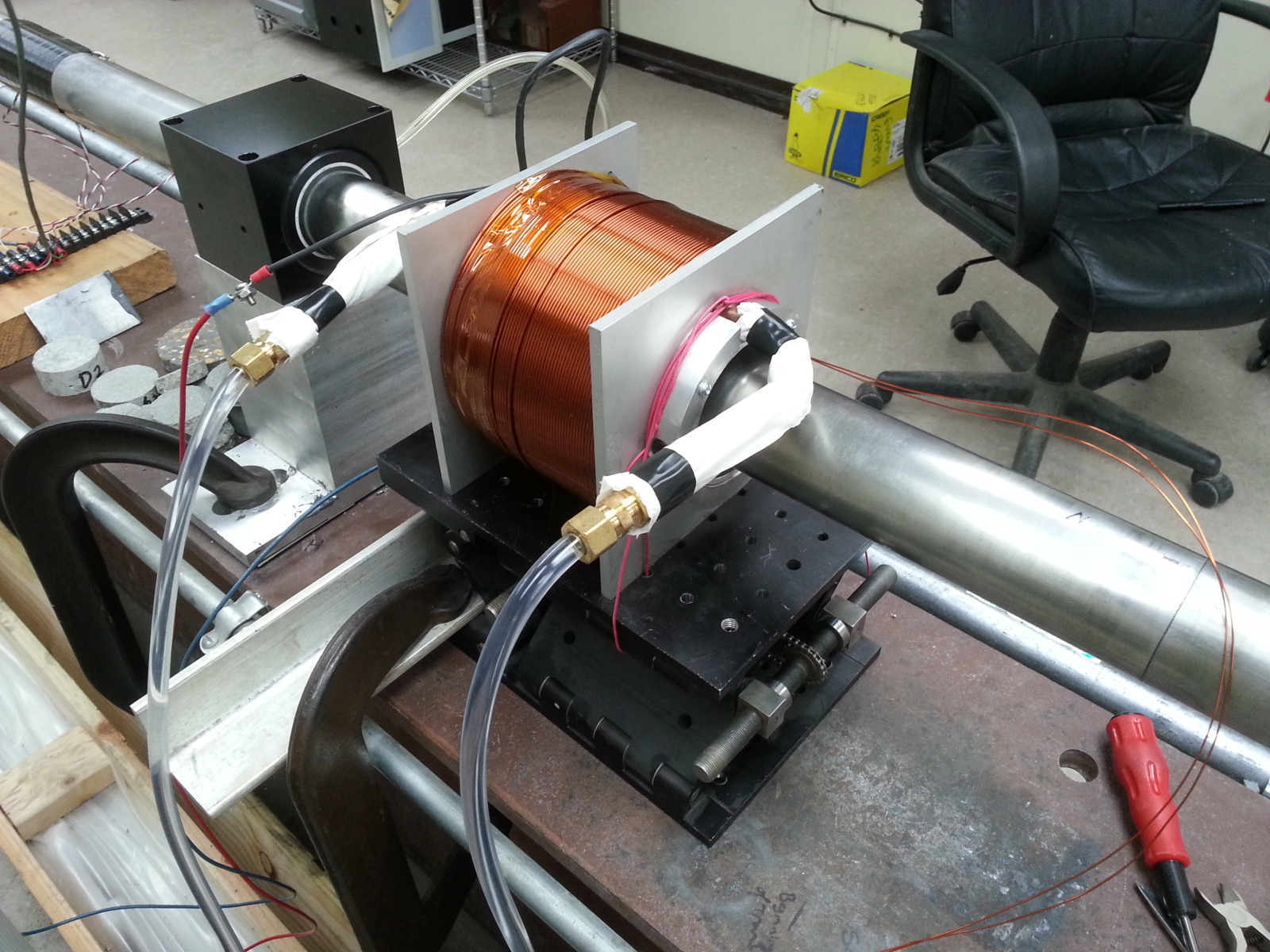Car crash safety mechanisms can only respond once the impact of the crash has reached their sensors. Scientists at the University of California, Los Angeles, are working on a new magnetic material that could signal an impact up to a thousand times faster.
Galfenol, made from gallium and iron, is a magnetic material developed by the US Navy. Its magnetic field is weakened when a large force is applied to it. 
The ability of a material to change magnetisation under an applied force is called magnetoelasticity. Compared to other materials with this property, the magnetisation changes of Galfenol are particularly large.
If a cylinder of Galfenol is wrapped in a wire coil when a force is applied, the change in its magnetisation generates an electric current.
Galfenol's high magnetoelasticity makes it very efficient at doing this, as described in the Journal of Applied Physics. It can convert 70% of the mechanical energy of an impact into electricity.
"It is unique because it also has good mechanical properties. We can build large structures with it, and apply large forces, and it still remains intact" describes lead researcher John Domann.
Domann originally investigated the material for use in power generation. Conventionally, this is done by rotating a magnet in a coil of wires, so the way Galfenol can be used to produce electricity is very similar.
But then the researchers hit on the idea of using Galfenol for impact detection. Incorporated into the bumpers or side panels of a car, the impact of a crash would cause the state of magnetisation in the material to change, generating an electrical signal.
The signal would travel at the speed of light, unlike the impact itself, which would travel through the body of the car at only the speed of sound. Light travels 1000 times more quickly than sound, so the electromagnetic signal could reach a computer before the impact reaches the passengers.
"A fast acting computer could take action to protect the passengers and limit damage on impact," explains Domann.
Galfenol's magnetoelasticity makes it a "versatile tool that can be used in all sorts of situations", but with only one US supplier it is currently quite expensive. Domann is optimistic that more suppliers entering the market would reduce the cost, making the material affordable.
- Previous Fizzing particles halt blood loss
- Next 3D-printing body parts









Comments
Add a comment